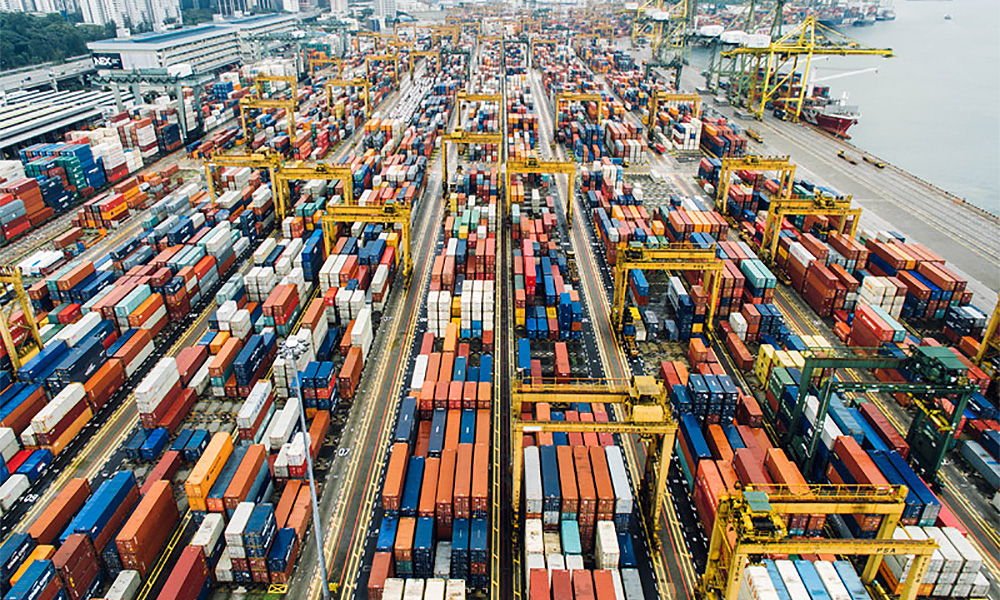Singapore's economy grew at its slowest annual pace in a decade in the second quarter, preliminary data showed on Friday, raising bets that a technical recession and monetary policy easing could be just around the corner.
The quarter's 0.1 percent GDP expansion was below the 1.1 percent forecast in a Reuters poll and the slowest annual growth since 2009's second quarter, when it fell 1.2 percent.
The trade ministry also said the economy shrank 3.4 percent on a seasonally adjusted and annualised basis – the biggest contraction in nearly seven years compared with a poll forecast of 0.1 percent growth and January-March's 3.8 percent expansion.
"It is quite disastrous... way below even the worst street forecasts," said Selena Ling, head of treasury and strategy at OCBC Bank.
The slump in Singapore – often seen as a bellwether for the health of the global economy – is the latest evidence that momentum has slowed across Asia as the year-long US-China trade war and sliding growth weigh on the region's export-reliant economies.
Elsewhere in Asia, analysts say South Korea may also be flirting with recession, while China on Monday is expected to report its slowest economic growth in at least 27 years.
Ling and others say the main drag for Singapore remains the manufacturing sector.
In the second quarter, manufacturing contracted 3.8 percent from a year earlier after shrinking 0.4 percent in the quarter earlier.
Singapore authorities have previously said they will review their 2019 full-year GDP growth of 1.5 to 2.5 percent , and some analysts say there might be a recession in 2020.
The standard technical definition of a recession is two consecutive quarters of economic contraction.
Ling said she expects authorities to soon lower their full-year growth forecast to 0.5 to 1.5 percent.
Singapore's finance minister said in a Facebook post on Friday the government was not expecting the economy to slip into "a full-year recession".
Electronics manufacturing output, the main driver of Singapore's economy in the last two years, declined for the sixth consecutive month in May while exports saw their biggest decline in more than three years.
Economic 'standstill'
Khoon Goh of ANZ, who described Singapore's economy as at a "standstill" in the second quarter, said in a note that with global trade "still reeling" from trade tensions and a broader global slowdown, downside growth risks remained.
In a Reuters poll done after the release of the Q2 data, seven of 11 economists said they expected the Monetary Authority of Singapore to loosen its exchange-rate monetary policy in its next policy statement, due in October, with the other four forecasting no change.
"There was a one-in-four chance previously that the MAS will ease," said Jeff Ng of Continuum Economics, who forecast no change.
"Now, it has increased to 40 percent that they will ease on or before October."
ANZ's note, headlined "We now expect MAS to ease in October", said it anticipated the central bank would reduce the slope of its policy band slightly to 0.5 percent per annum from 1.0 percent.
ING said the central bank might ease well before October.
"Today's data suggest that waiting would put the economy in greater than necessary jeopardy. An imminent move, therefore, looks probable," it said in a note.
The MAS tightened monetary policy twice last year in efforts to control rising price pressures and strengthen its currency - its first such tightening moves in six years.
Even ordinary Singaporeans are beginning to feel the pinch.
For fruit and juice stall owner Veronica Chan, based in a commercial district in the west of Singapore, said customers had dwindled in recent months as firms moved out.
"I've been here since February... That month OK, quite crowded, but after I hear that people move out from here, move out from there. Wow, many people moving out."
- Reuters


